Insights from Massachusetts physicians on navigating the early years of practice
BY ERIKA MCCARTHY, SENIOR EDITOR AND WRITER

Image by andresr via Getty Images.
The first year after training can feel like a strange mix of liberation and vulnerability. Gone are the 80-hour workweeks and daily supervision — but in their place comes a new kind of pressure: making independent decisions, managing uncertainty, balancing
patient care with administrative overload, and navigating identity as a “real” physician for the first time.
We asked physicians across Massachusetts to share the one thing they wish they’d known — or wish someone had told them — when they first stepped into the life of an attending physician. Whether you’re starting your first job, settling into new responsibilities,
or just feeling the ground shift under you, their reflections offer reassurance that others have been there too.
Here’s what some of your colleagues had to say:
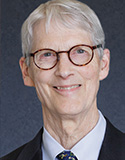
Dr. Hugh Taylor
“Recently, during a routine visit, I asked a patient about a 5 mm blue spot on her right cheek. She smiled and told me that when she was in her teens, she invited her older brother, a tattoo artist, to inject her with ink so she could find out what it felt like. After he created the small blue spot on her face, she decided she did not like the feeling and never had another tattoo.
During residency, I was repeatedly told that if you listen to the patient long enough, they will tell you the diagnosis. What I was not told was that listening to my patients would become my biggest source of pleasure with my work: nothing matches this remarkable privilege of being able to uncover snippets of the lived experiences of others. I still look forward to seeing patients because I always learn from them in ways that expand my understanding and appreciation of the human condition.”
— Hugh Taylor, MD, family physician, in practice since 1982.
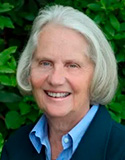
Dr. N. Lynn Eckhert
“Stepping into a new position brings out a set of emotions both overwhelming and exhilarating. When I took on a new position, at first, I worried, ‘Am I sufficiently prepared and experienced to take on these new responsibilities?’ Just remember whoever hired you is confident you will be an asset to the team; find a few mentors who can serve as guides and plunge in. One cautionary note — make certain you understand what is expected of you, how your performance will be evaluated, and what benefits are associated with the position. Each new position offered me an invigorating opportunity to really make a difference by finding creative ways to work best as a team, to learn from and support patients, trainees, and colleagues, and to become efficient and effective for the common purpose of improving health care. A new position offers exciting challenges and is truly enlivening.”
— N. Lynn Eckhert, MD, DrPH, pediatrician, practicing pediatrics for 20+ years
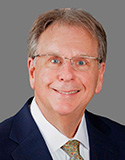
Dr. Ted Calianos
“Caring for patients is our raison d'être, but make sure you make time for yourself and your family. Your family will often be the bedrock of your support system.
Never be afraid to ask for help professionally or personally.
Control what you can control and do not obsess over things you cannot.
You may not have to see your patients, but your patients need to see you.”
— Ted Calianos, MD, FACS; physician for 34 years; in practice for 27 years; plastic surgeon doing primarily reconstructive and hand surgery; CMO of Falmouth Hospital;
medical director of Medical Affiliates of Cape Cod — the employed physician group of Cape Cod Healthcare; board member Coverys.
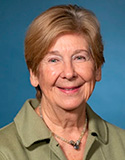
Dr. Lynda Young
“When we moved to Worcester, I joined another pediatrician in his practice. I ended up working more hours than he did and was paid significantly less. Lesson learned — speak up! When my husband and I purchased a practice, thank goodness the office nurse stayed! I didn’t appreciate how important that was to us. That independent practice continues now, even as corporate medicine has taken over so many smaller offices.
One big opportunity that I did not take advantage of was to join organized medicine until at least 10 years later. Through our local medical society, I met so many colleagues that I used as a referral base but never knew personally. Those relationships were so important to my patients and my practice.”
— Lynda Young, MD, Pediatrics, independent practice for 35 years, now chair of the board of directors, UMass Memorial Health
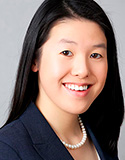
Dr. Monica Wood
“Surround yourself with supportive friends, mentors, and sponsors at various career levels and even different specialties. Whether it is socializing with a peer who is going through similar challenges or speaking with a senior partner who can offer wisdom and perspective, staying connected with our colleagues is particularly important during the early career years. In addition to our own departments and institutions, alumni groups and medical societies like the MMS are great places to find camaraderie and support!”
— Monica Wood, MD, in her fifth year in independent radiology practice at Mount Auburn Hospital
